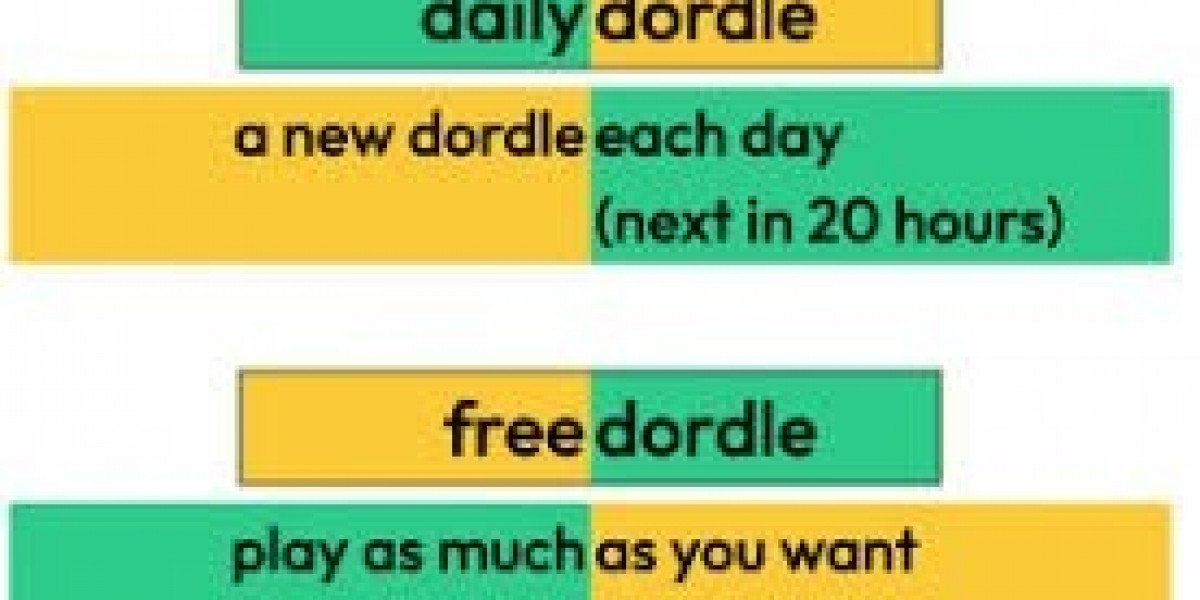In a world where people are increasingly distant—physically and emotionally—simple things can become powerful connectors. A shared meal. A walk. A song.
Or, surprisingly… a word game.
That’s what Dordle has become for thousands of people: not just a game, but a shared ritual. While at first glance it may seem like a solitary puzzle, Dordle has quietly turned into a cultural phenomenon that encourages communication, connection, and even a sense of community—one word at a time.
This is the story of how Dordle, a game of guessing five-letter words, became a bridge between generations, time zones, and hearts.
From Solo Challenge to Family Tradition
It often begins with one player.
Someone discovers Dordle while looking for a daily brain exercise. They enjoy the quiet thrill of deduction, the suspense of each guess, and the simplicity of the game’s design. Then they tell someone else.
Soon, families start:
Competing at breakfast.
Texting each other results.
Guessing words together around the dinner table.
Dordle becomes part of the day’s rhythm—something to look forward to that isn’t just screen time or chores. And because it's once a day, it doesn’t overstay its welcome.
Even grandparents who aren’t usually “into apps” find themselves joining in. Unlike most modern games, Dordle doesn’t require gaming skills—just curiosity and a love for language.
A Shared Puzzle Across the Globe
Dordle’s format makes it perfect for long-distance connections.
Friends living in different countries text each other:
“Did you get Dordle today?”
“I messed up the second word, it was so sneaky!”
“My first guess got 4 greens! So lucky!”
These conversations are light, low-pressure, and fun—but they keep relationships warm. Dordle gives people something to share daily, no matter the time zone.
In this way, it becomes a digital ritual with emotional depth. You may not talk for hours, but that one message with your puzzle result says: I'm here. I'm thinking of you.
In the Classroom and Beyond
Educators and parents have also embraced Dordle as a fun, non-intimidating way to encourage:
Vocabulary building.
Strategic thinking.
Pattern recognition.
Some teachers start class by letting students work on Dordle in small teams. It’s collaborative, educational, and—best of all—short. One puzzle, 10 minutes, and a big payoff in confidence and group learning.
It helps students build not just language skills, but social skills too. They learn how to:
Discuss possibilities.
Consider different viewpoints.
Cheer each other on.
It’s gamified teamwork in its simplest form.
Dordle and the Joy of Small Wins
In a time when so much of life feels overwhelming—news, deadlines, social pressure—small victories matter. Dordle offers a quick, satisfying “win” to start the day.
Even failing to solve both words can still spark laughter and learning. The results are easy to share, and there’s no leaderboard or harsh judgment. It’s all about effort, not performance.
This creates an inclusive atmosphere, where players of all ages and abilities can feel good just for participating.
Why We Love Sharing Our Grids
The colored grid results (??⬜) are now iconic. And even though they don’t reveal the actual words, they still tell a story—of near misses, of brilliant guesses, of that final satisfying “green” tile.
When people share their grids on social media or with friends, they’re not just sharing results. They’re saying:
“Look how I thought through this.”
“Can you believe I pulled this off?”
“Guess which guess cracked the code?”
It’s a way of telling stories without words—through colors and patterns.
And as others chime in, the game becomes a conversation, not just a puzzle.
A Game That Encourages Kindness
Perhaps most interesting is the tone of the Dordle community.
Because there’s no scorekeeping or competition baked into the game, players tend to be:
Encouraging rather than judgmental.
Curious rather than critical.
Generous with tips and encouragement.
Online forums, group chats, and comment threads about Dordle are usually filled with positivity:
“That second word was tricky today!”
“I started with ‘SLATE’ and it worked out great.”
“Oof, I missed one—but it was still fun!”
This culture of kindness is rare in competitive spaces, but Dordle helps cultivate it by design.
A New Kind of Social Calendar
In the end, Dordle gives people something more than a game.
It gives them a shared experience.
A daily anchor.
A story to tell.
A reason to reach out.
It’s small, simple, and silent—but it adds color to our conversations and rhythm to our days.
So whether you’re playing alone or with others, you’re always part of something bigger: a global web of thinkers, guessers, and language lovers who, for a few quiet minutes each day, are solving together.







